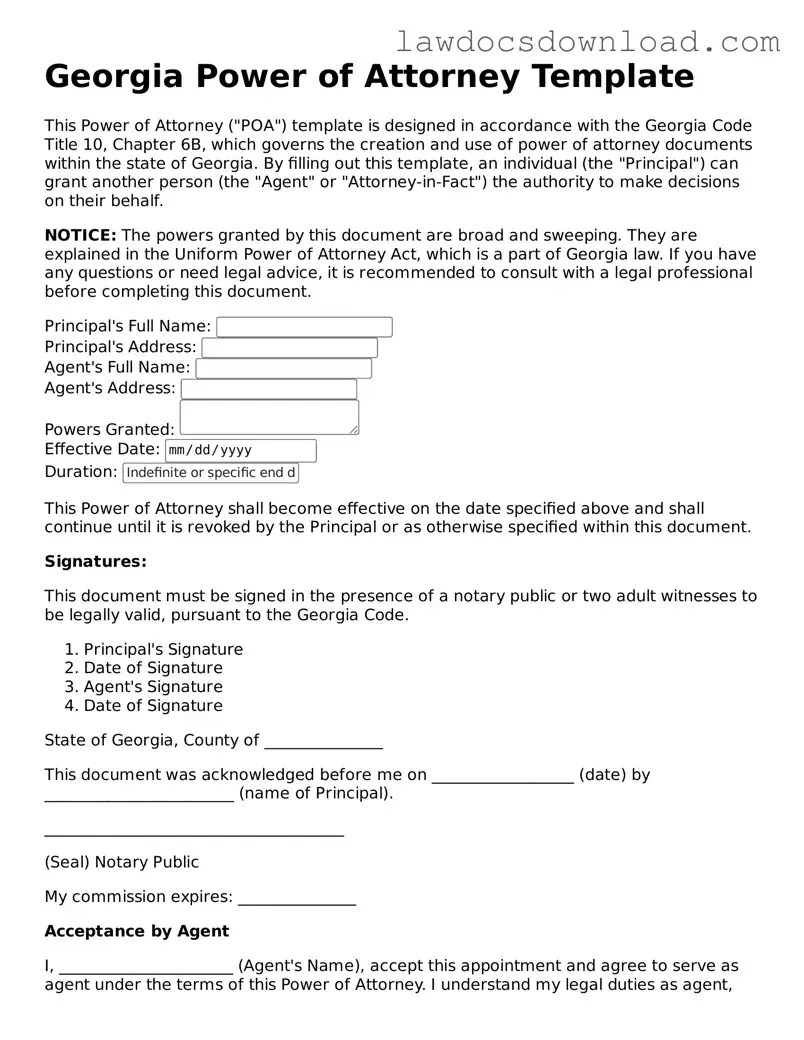Legal Georgia Power of Attorney Form
A Georgia Power of Attorney form is a legal document that allows an individual to appoint someone else to manage their affairs, such as financial, legal, or health decisions, on their behalf. This powerful tool can provide peace of mind, ensuring that your matters are handled according to your wishes, especially during times when you're unable to do so yourself. It's essential to understand how this form works and the steps needed to make it legally binding.
Launch Power of Attorney Editor Here

Legal Georgia Power of Attorney Form
Launch Power of Attorney Editor Here

Launch Power of Attorney Editor Here
or
Free Power of Attorney
Get this form done in minutes
Complete your Power of Attorney online and download the final PDF.